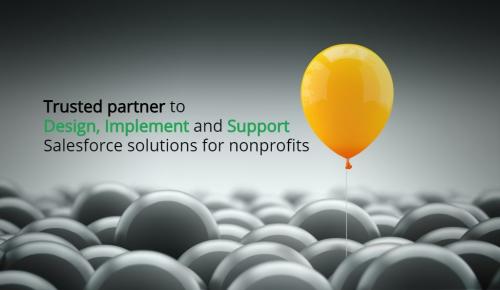How CRM Reduces the Administrative Burden of the Non-Profits?

If you’re still using spreadsheets for volunteer hours and handwritten notes to track the weekly tasks of your team then you may be missing some important information. Use of spreadsheets, document tables, and sticky notes is slow and inefficient process and cannot scale-up as your non-profit business grows.
Undoubtedly, manual processes consume lot of time that would otherwise be used to achieve your organizational goals. Leveraging digital transformation, this burden can be eased up. Using technology solutions like CRM, time spent on manual processes like updating donor information, keeping track of ongoing projects, and sending donation receipts can be reduced greatly.
With CRM solutions like Salesforce CRM for non-profits, organizations can easily maintain fruitful relationships with donors and members. You can regularly keep in touch with high-profile influencers such as politicians and benefactors by sending them emails on various events.
Initially, like other organizations, non-profits also use spreadsheets to manage donor data. However, spreadsheet becomes a flawed solution when you need to keep track of hundreds (or thousands) of contacts amongst multiple staff. Furthermore, if your team is working on multiple sheets then it becomes really difficult to track data. CRM solutions centralize your data, enabling you to easily analyse and monitor donor communications from an introduction to the present.
By delivering a single-page view of a donor’s information such as emails, recurring donations and events attended, CRM makes it easy to look up donors and gifts, analyse trends, and manage fundraising campaigns. Moreover, by providing actionable insights, CRM ensures right tasks at the right time.
Solutions like Salesforce for Non-Profits offers real-time visibility into your data to your staff. This enables your staff to understand latest developments of your organization - contact information, reports, ongoing campaigns, and tasks that need to be completed. Leveraging CRM, you can easily monitor all the daily, weekly and monthly tasks which your team has completed. You can also plan new initiatives on which you want to work in future.
Converting new contacts into donors is very important for the growth of your non-profit organization. With the help of non-profit CRM, you can ensure better fundraising by automating nurture cycle. You can make your marketing efforts more efficient by bringing in CRM solution.
Advanced CRM solutions come with powerful tools like email automation tool that can be used to automate manual task of sending emails. With workflow automation, emails can be triggered automatically using different email content, based upon someone’s actions. You can also automate sending of personalized “Thank you” emails after receiving a gift using CRM.
CRM can also automate sending of donation receipts. When you receive donation through an online donation form, a receipt can be automatically generated with Donation ID, Organization Information, and Signatures. Thus, CRM will save your time as well as effort by automating daily tasks.
Generating reports manually is a time consuming tasks. Furthermore, you won’t be able to gain actionable insights regarding the overall health of your non-profit. CRM eases the pain of preparing manual reports and analytics. By automating every aspect of reporting such as event reports, email analytics & donations, CRM enables you to easily monitor the health of your organization.
CRM also enhances transparency by improving collaboration. It is really difficult to provide details when your data is stored in a few different places. By centralizing data, CRM ensures single source of truth, enabling your team to quickly pull reports about a single donor or non-profit at large.
Comments